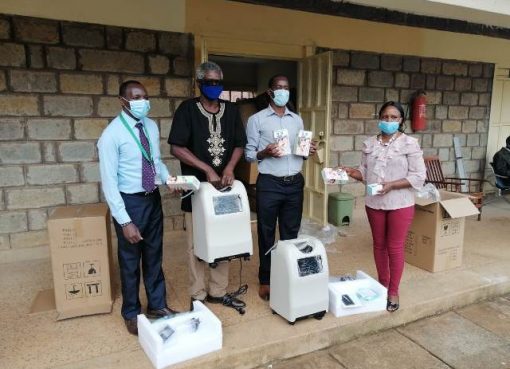World Bank in conjunction with National Agricultural and Rural Inclusive Growth Project (NARGIP) has disturbed cheques worth Sh4.6 million to farmers’ groups in effort to boost farming activities in Vihiga County.
Area Governor Dr. Wilber Ottichilo presided over the disbursement ceremony that was held outside county government headquarters in Mbale town on Thursday.
A total of 52 groups of farmers, who are engaged in various farming activities, benefited from the Sh14.6million grant.
Speaking at the event, County Executive for Agriculture Pamela Kimwele said World Bank and NARGIP had set aside a total of Sh200million towards improvement of agricultural activity in the County.
“We are pleased to effect the first phase of this ambitious project in which 52 groups of farmers gathered here today will receive cheques totaling to Sh14.6million,” noted Kimwele, adding the groups were drawn from eight Wards. The County has a total of 25 Wards.
The county executive further thanked African Agricultural Technology Foundation (AATF) for donating maize seeds to several farmers to be planted during this period that is usually characterized with short rains.
AAFT distributed 40 tonnes of W1101 maize seed variety, which matures fast and require less amount of water, thus conducive for short rain seasons.
On his part, the governor said the World Bank/NARGIP project aims at enrolling a total of 600 groups of farmers into the grant.
He encouraged farmers in the County to venture into agribusiness and embrace modern farming methods instead of over relying on subsistence farming.
“Agribusiness and modern methods in farming are the surest way of boosting our sources of livelihoods as well as improving living standards of our people,” Dr. Ottichilo told the farmers.
Some of the activities NARGIP project undertakes include dairy farming, local chicken production, indigenous vegetables farming as well as tissue culture banana production.
By Maurice Aluda


